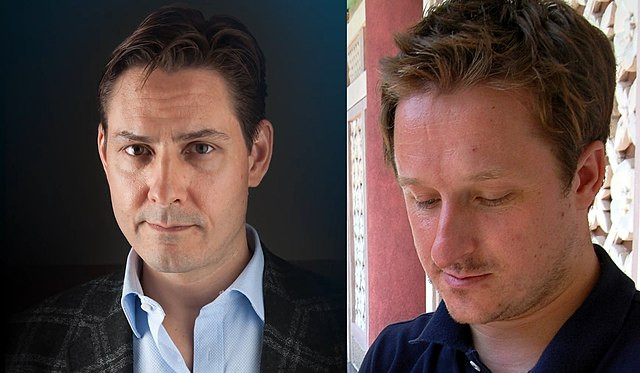Canada's federal government has reached a settlement worth approximately C$7 million (US$5.2 million) with Michael Spavor, a businessman who was detained by China for nearly three years during a diplomatic feud between the two countries. Spavor, along with Michael Kovrig, became known as the "two Michaels" after they were arrested by Beijing in December 2018, shortly after the arrest of Huawei executive Meng Wanzhou in Vancouver on a U.S. warrant.
In November, Spavor reportedly threatened to sue both Canada and Kovrig, alleging that he had "unwittingly" provided intelligence on North Korea to Kovrig, who then shared that information with Canada and its Five Eyes allies through Canada's global security reporting program (GSRP). The settlement, which includes legal fees and expenses, resolves the matter between Spavor and the Canadian government.
Charlotte MacLeod, a spokesperson for Global Affairs Canada, stated, "While the 1019 days in which they were arbitrarily detained by China will never be erased, the Government of Canada is committed to supporting them in their efforts to turn to a new chapter in their lives based on their individual circumstances and impacts, and in acknowledgement of their ordeal and the suffering caused by their arbitrary detention by China."
The arrests of the "two Michaels" drew accusations of "hostage diplomacy" by Canada and its allies. Chinese officials claimed that Spavor, who frequently visited North Korea and had spent time with the country's dictator, Kim Jong-un, was supplying intelligence to Kovrig, who had taken leave from working as a diplomat at Canada's embassy in Beijing from 2012 to 2014 to work at the International Crisis Group.
In August 2021, Spavor was sentenced to 11 years in prison on charges of spying, while Kovrig's verdict, after a secret trial in March, was never announced. Both men were released by China in September of that year, after Meng Wanzhou reached a deal with U.S. prosecutors and was freed, ending a standoff that lasted more than 1,000 days.
The settlement follows a damning report by Canada's national security and intelligence review agency about the controversial GSRP. The watchdog found that the program put its officers at risk and breached global diplomatic conventions, with officers lacking "adequate training" and insufficient risk assessment and security protocols to ensure their protection and that of their sources.
Kovrig, who previously acknowledged to the Globe and Mail that he was in talks with Canada over compensation, did not respond to a message seeking comment. Former Canadian ambassador to China, Guy Saint-Jacques, who was Kovrig's former boss, stated that the settlement does not mean Kovrig was a spy, adding, "A spy would use clandestine approaches as means to get want he wants. In this case it was totally transparent."
Saint-Jacques also noted that Spavor was unique because he was a foreigner who had access to North Korea's leader. "The federal government probably recognized his way of living. It's impossible now for him to go back and live in China and organize tours in North Korea. This is a major disruption to his lifestyle and work prospects," he said.
The settlement marks the end of a tumultuous chapter in Canada-China relations, which were strained by the detention of the "two Michaels" and the subsequent diplomatic standoff. As Spavor and Kovrig attempt to move forward with their lives, the Canadian government's compensation serves as an acknowledgment of the hardships they endured during their nearly three-year ordeal in China.




